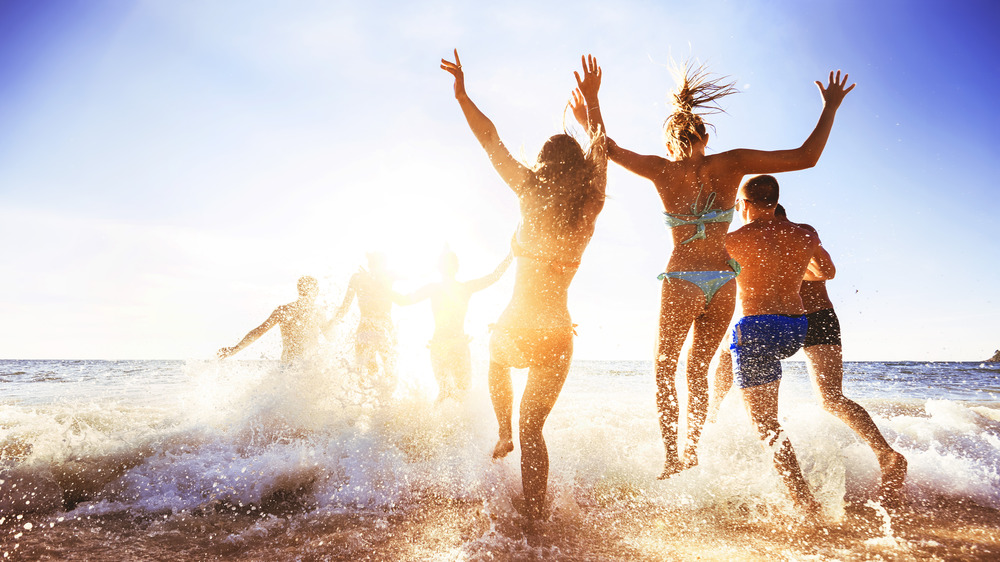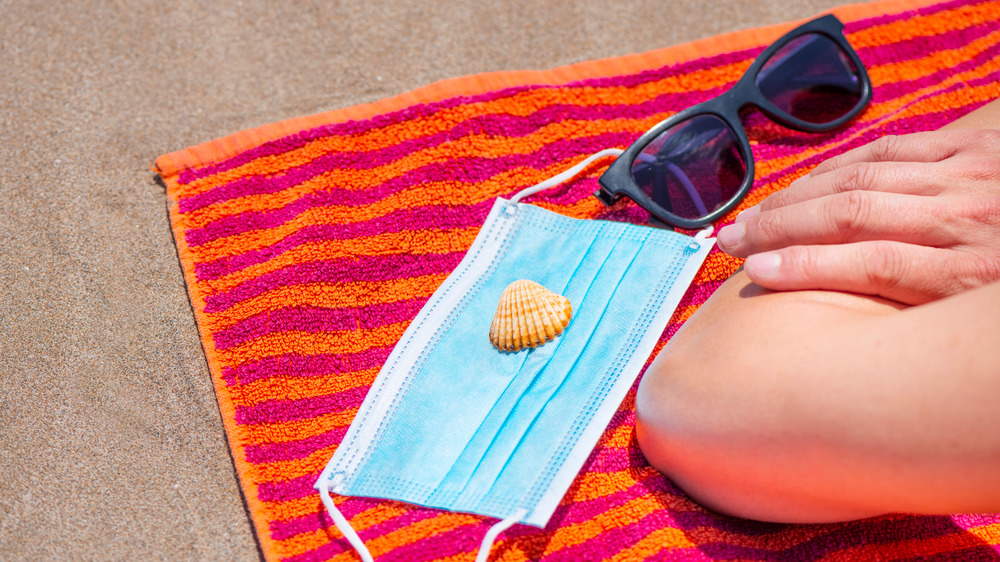Why Spring Break Could Be The Next Superspreader Event
After the year that was 2020 and the continuing COVID-19 pandemic, it's safe to say that everyone can use a vacation! With March traditionally corresponding with "spring break" and the thought of being on a beach somewhere warm and sunny is appealing, top health officials are warning against it. Dr. Rochelle Walensky, director of the US Centers for Disease Control and Prevention, issued a warning stating "Don't travel, we really, really would advocate for not traveling right now" (via CNN).
The obvious concern comes from the fact that historically rowdy and fearless college-aged students will be partying in places like Florida, where they will be mostly maskless, in close contact with each other, and drinking excessively — thus unknowingly spreading COVID-19. The problem is, not only can they spread the virus amongst each other while on spring break, but they risk bringing it back to their home states, universities — and potentially high-risk family members like grandparents. Younger adults are more likely to remain asymptomatic or develop mild cases of COVID-19, so they are likely to become superspreaders for the disease.
Even more problematic is the circulation of more contagious and more lethal COVID-19 variants. Of the 50 U.S. states, Florida has the highest percentage of the more contagious B.1.1.7 or "U.K. variant." The U.K variant has been found to be 59 to 74 percent more transmissible than the original coronavirus strain, which means it can spread more easily and quickly. Students returning to their home states after any period of time not following CDC mask and social distancing recommendations pose a great threat to the country's progress in combating the COVID-19 pandemic.
How some universities are trying to hold-off a "spring break" surge
After finally making some headway with increased vaccinations, some universities have taken concerns over another surge in COVID-19 cases into their own hands. Texas A&M University chose to cut the tradition week-long spring break to a three day weekend, in an attempt to discourage students from dangerous behavior (via CBS Miami). Both Ohio State and the State University of New York decided to completely cancel spring break this year in order to adapt to the current world circumstances. Many others have also modified this typical "rite of passage" for college students.
For those who chose to forgo the warnings and travelled to areas like Miami and Fort Lauderdale, people are receiving public health text messages urging them to "Vacation responsibly or be arrested." While the state may not have a mask mandate and fairly open businesses with little-to-no restrictions, individual businesses can impose mask and social distancing rules on their premises.
While pandemic fatigue is real and we are all feeling it, now is not the time to give up. Despite several states lifting mask mandates and opening businesses back up without restrictions, top health and infectious disease specialists continue to stress the importance of masking and social distancing practices. Earlier this week, the CDC offered some guidance on "old" freedoms fully vaccinated people can now enjoy. The guidelines offer a glimpse of hope into what the future and "new normal" may look like when enough of the population is vaccinated and protected against this deadly disease. Until then, keep wearing a mask, avoid crowds, and maintain social distance.


